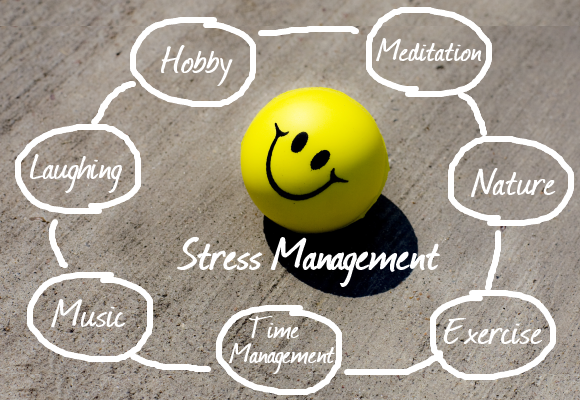All About Stress Management
Find out how you can learn to reduce, prevent and cope with stress.
by Aaron McCardell
It might seem as if stress is something about which one should not worry: It is a normal part of life, and in today's fast-paced, "dog-eat-dog" environment, it is easy to adopt that way of thinking without realizing it. After all, stress is an ingrained physical response within humankind dating back to prehistoric times, when humans had to have a fight-or-flight reaction when in danger. The fact remains, however, that stress can be a killer, and no one should suffer from it regularly. Doing so places a person at great mental and physical risk. As such, it is important to learn stress management for one's optimal health.
Identify the Sources
The first thing one must do to manage stress is to identify the source of the stress. A person cannot begin to reduce stress and the negative effects it has on the human body unless the person understands the element causing the stress initially. Many people are tempted to avoid stressful situations, believing that this will reduce the stress reaction related to the event. Unfortunately, the opposite is true, and the stress merely builds up inside the person until it creates negative consequences. Rather than withdraw or hide from a stressful situation, one must identify and face the stressor in order to manage it and its side effects properly.

Types of Stress
Identifying the source of the stress also aids one in identifying the type of stress from which they suffer. There are several different types of stress, including acute, chronic, post-traumatic, work-related, and home-related stress. A panic attack might be the best way to describe acute stress, as it is a quick and temporary form of stress brought about by a sudden stressor. Chronic stress is long-term, meaning the person suffers from stress on a regular basis, perhaps from being trapped in a stressful situation from which they cannot escape. Post-traumatic stress is a delayed reaction to a stressful event. Naturally, work-related stress is stress stemming from a person's vocation, and home-related stress is stress stemming from the home or personal life.
- Post-Traumatic Stress Disorder (PTSD)
- Post-Traumatic Stress Disorder
- Is Paranoia a Symptom of PTSD?
- PTSD and Its Impact on the Family
- Stress Management
- What is Stress?
Stress-Related Disorders
The most widely identified stress-related disorder is post-traumatic stress disorder, or PTSD. This debilitating condition causes severe emotional, mental, and physical changes in a person, including aggressive behavior, chronic depression, memory lapses, and frightening flashbacks to the initiating stressful event. Other stress-related disorders include mental illness, such as anxiety and/or depression; chronic illness; diabetes; heart disease; insomnia; and obesity. When one considers this information, one realizes that stress is more than just having a bad day. Stress-related disorders are very real and quite serious, wreaking havoc on a person's body and mind. A person can literally become chronically diseased from stress.
How to Cope
Naturally, learning to cope with stress, thereby managing it, is a more desirable approach to the condition than succumbing to chronic mental and/or physical illness. Fortunately, there are many strategies available to those who wish to learn how to cope with their stress. The first thing is to identify the source of the stress and then handle the situation. If the stressor can be removed, one should remove it from their life. If not, one must develop healthy coping strategies to manage the stress. Healthy stress coping strategies include living a healthy lifestyle; employing relaxation techniques, such as hypnosis or meditation; seeking support from a support group and/or therapy; managing one's time; ensuring that one gets enough sleep; and avoiding alcohol, drugs, and caffeine. One might think that a cocktail at the end of the day reduces stress, but contrary to popular belief, it actually increases the condition.

A Healthier Lifestyle
Aside from identifying the source of stress, facing that source, and then employing coping mechanisms, the best way to manage stress is to develop a healthy lifestyle. A person's body cannot manage stress properly if it is broken down for other reasons. Eating a healthy diet filled with whole grains, fruits, and vegetables keeps one properly fueled to face their day and feeling well. Exercise is not only good for a person's overall health, but it is also an excellent coping technique. When one exercises, one actually activates body chemicals that reduce stress, thereby reducing its cumulative effect on the body. Exercise also helps one sleep better throughout the night, which is another key factor in a healthy lifestyle. Learning how to manage one's time also increases feelings of well-being and a healthier lifestyle, as one does not become overwhelmed with too many things to accomplish in too little time.